- Home
- Mark Zubro
A Conspiracy of Fear Page 9
A Conspiracy of Fear Read online
Page 9
I thought I’d spend the time researching everything I could about Peter Fulham, both on the reasons for him not getting into the Hall of Fame, which I thought I might find, and for the murder south of St. Louis, which I thought would be nearly impossible to discover. I would hunt around for those items concomitant with the time he was first eligible for the Hall and see who might have been writing about him then and what they said. Then I could check on articles around the time of the death.
I called up the Internet on my phone. First, I checked several sites for the latest on the massacre. The twenty-four hour news channels were mostly continuing the speculation stage of their coverage. Wild conspiracy theories were debated, debunked, and perpetrated.
I found a site that was streaming the live press conference being held by the governor and the mayor. They were reiterating what they’d said at the briefing for victims and families.
One channel had found numerous Internet sites that posted some form of “More of the Fags are Going to Die.” When they began to debate and discuss this, I moved on.
I had emails from friends warning me of a web site called Hate the Gays. Scott and I have such sites monitored and check in on them as they relate to him.
The friends warned me in general, a few in specific, about what today’s threats contained. I clicked over to the site which invited people to take matters into their own hands and find Second Amendment solutions to what they called the problem of gays in America. The site was filled with articles praising those who took Second Amendment actions to solve problems especially to try to thwart what they called the homosexual agenda. I switched off from the Internet when I found the picture on that site of Scott with a bullet hole in the center of his forehead.
I paced and seethed for several minutes then called Todd Bristol. He had seen the same site.
Todd’s voice was brisk and determined as he said, “I’ve called in every favor from every law enforcement agency I’ve ever dealt with. They were already doing a great deal on the massacre, but I managed to get a lot of movement on these threats and web sites. If I can, I’m going to cause these people a shit storm of trouble.”
My simple thanks seemed inadequate.
“Piffle. Not only are you clients, but you are friends. There are times to rally around. The entire force of the law must be brought to crush them all.”
I wasn’t sure exactly who them was, but Todd was on the case, and if a shit storm could be caused, I had confidence he would do so.
We exchanged options about our own personal security. We finished our talk as he had to rush off to do more legal planning connected to the threats.
I wanted to run into where Scott was being tended to but restrained myself. For now I felt safe. We were in a private clinic. This was an important session for him. We couldn’t do anything more if I barged in now, or if I waited until he was done.
I was sick of crazy threats and paranoid protestors. Paralytic depression wasn’t my style. I could brood about death and destruction and the uselessness of struggling against the vicissitudes of outrageous fortune, or I could immerse myself in research.
I chose to immerse. I went back to the Internet.
It’s a nerd thing, but I love the whole process of following a line of inquiry specifically and whimsically to obscure corners of useless information. As an English major in college, I turned my penchant for doing mind-numbing research into a real asset.
I began by looking up Fulham’s career. His yearly records were readily findable along with the resultant data. On YouTube I found the video of highlights from his last game. It had only a few hundred hits. I hit play. Memories from childhood flooded back as I watched.
I uncovered only a few articles about him and about games in which he played.
I found four articles that mentioned him after World Series games he’d lost and won for four different teams. One writer had a column about the last team he was on. It talked about tensions in the clubhouse, fights between players, arguments and blame after games lost. No mention of the triumphal last game. I checked the date. It was before that happened. Fulham was not named specifically as being part of the clubhouse problems.
By Googling ‘club house tension in the 1940s, 50s, and then 60s’ and the names of the teams he’d been on, I got a few articles. One column hinted about fights between unstable players that recommended they get therapy.
Then that kind of gossip could be put down to rumors and innuendo. Today, they’d probably be trying to interview the combatants on any number of twenty-four hour cable shows. I checked the name of the reporter and looked him up. He’d covered baseball for forty years and died two years before.
EIGHTEEN
Friday - 1:30 P.M.
For a break, I got up and stretched. I listened to the soft hum of the building. I hoped all was going well for Scott. I touched the bandage on the side of my head. Even with a pain pill, it throbbed intermittently.
Back to work I hunted up news for the weeks before and after the first Hall of Fame vote for which Fulham was eligible. I found a column by a guy who talked about what a rotten person Fulham had been. Did the guy know gay stuff but was afraid to say it? Or did this trashing of Fulham help lead to his not getting into the Hall of Fame? Maybe being gay had nothing to do with it. Maybe he simply wasn’t liked. Sad as his story was, he wasn’t very likable now.
I found a number of columns written about how Peter Fulham had been robbed and should have been voted in.
I found the site with vote totals for the Hall through time. While Fulham had gotten thirty-eight percent of the votes in his first year of eligibility, it had dropped off precipitously over the next few years. I checked to see if any of the columnists were still alive. None that I could find. I checked the Chicago sports writers from those days in the Tribune, Sun-Times, and the Daily News. Again, nothing.
I checked national sports magazines and found a bit more. One comment about Fulham’s career purporting to be an argument against voting for him was that he wasn’t that talented of a pitcher, but that he’d had an amazing string of luck with the teams to which he was traded. After he joined a team, it so happened those teams were in contention for the pennant and/or World Series that year. The columnist claimed it wasn’t talent, but luck that got him some good statistics.
I hunted for more articles about Fulham for six months before and after the first year he was eligible. I found another columnist who complained about the good stuff in Fulham’s career being luck and not really being talent. The phrase this guy used, an LA columnist, said, “Talent is not luck. Lady luck is not the same as winning. Luck does not replace hard work.” I’m not sure that made a lot of sense, but it sounded familiar. I looked back at the original article I’d found. The exact same three sentences appeared. I searched for half an hour more and found three more that used not exact, but almost similar phrasing. Now days they’d be called talking points. Had someone, the reporter Fulham accused, used those words and these columnists joined on the bandwagon? It was certainly possible. I just didn’t know how probable, but then I didn’t believe much in coincidences either.
I signed up for more online research sites in the next hour than I had in the past couple years. Early on I began creating files on the laptop for different articles, by subject, subset, author, and saving them to the desktop and the flash drive I had attached to my car key ring. I also bookmarked each different site. I hunted deep into the pages in each Google mention.
In Sporting Life I found a column about Fulham in which the author was outraged about him not getting into the Hall. Even better, he was still alive and living in Chicago. It was Brendan O’Rourke, whom Fulham had mentioned.
Scott came out. We got hot chocolate from the vending machine. “What’s the word on your shoulders?”
“They’re designing exercises for the new wound in conjunction with the old wound. It’s going to take some time. They don’t want me to accidentally favor something. They keep measuring
stuff and then moving my arms up, down, left, right, with weights, without weights, with lighter weights and heavier weights, then checking to see how all the shoulder stuff affects the rest of my torso and my legs.” He nodded toward the computer and the phone. “You must be bored to tears.”
“Doing research on Fulham. It’s mind numbing and boring, but I’m good at mind numbing and boring, so it’s all right. I find myself not thinking about what happened, at least for a short while.”
I told him about the further threats to gay people and to him in particular. He nodded. “Yeah. The team lawyer is here. I think Todd might show up or be in on a conference call. They’re taking this pretty seriously.”
“We’re going to walk around town encased in body armor?”
“I guess if we need to. You know you don’t have to stay.”
“I’m just going to be doing this research. I can do it here as well as at home.” I showed him some of the things I found.
Scott said, “That use of the same language strikes me as suspicious.”
“Me too. I’ll stay here and keep hunting.”
“This rehab shit could be hours.”
“And I will be right here.”
He leaned over, and we kissed. I watched him walk away. The man’s ass can certainly fill a pair of jeans.
I turned back to the computer. Finished with data on Fulham’s career, now I wanted to find out if there was any evidence that there had ever been a dead guy connected even peripherally to baseball in St. Louis at the time Fulham claimed he was there.
I tried finding Ste. Anne de Isle, the little town south of St. Louis where Fulham said the murder occurred. Turns out in the sixty years since, it had gone from a little town to not existing. It had been absorbed into the greater metropolitan area of St. Louis and merged with two other suburbs that now formed one river town that used to flood until they finally extended the levees from St. Louis. The Meramec Gazette, the local newspaper had closed in the early seventies. I could find no records of its past issues on line.
So I called up the St. Louis newspapers. Turns out only the last few years of the St. Louis Courier Journal were completely on line. The Courier Journal had purchased the Meramec Gazette and had all of its back issues, but again none of them were on line. You had to actually go there and look at them.
Fulham said the guy just never showed up at the boat. I found no record of a body being found. Maybe he had just been unconscious and got up and walked away. Maybe all Fulham’s guilt was for nothing. Maybe the other guy got mugged and tossed in the river, or he was a gay kid in despair and threw himself off a bridge.
I checked the Memphis, TN, Cairo, IL, and Cape Girardeau, MO newspapers. For some of the databases I could get trial subscriptions. I had to sign up for others and pay a small fee. What little I found, gave me no information that connected to what Peter Fulham told me.
Neither the Courier Journal, the St. Louis Post Dispatch, or the St. Louis Globe Democrat published an index.
Then I Googled for murder in St. Louis. It took me ages of surfing through websites but I finally found one that mentioned a minor league player named Huey Kemmler whose body had been found in the Mississippi River in 1940. Kemmler had been part of the last few exhibition games that season and was scheduled to be sent back to the minors. There was no mention of Fulham and nothing about any team. So I turned to the various baseball abstracts. Kemmler was listed in a very few as having had twenty-five at bats in the major leagues with several teams. I could find no pictures of him, no details about his life.
I hunted for Huey Kemmler for an hour but found nothing further. In case it was a nickname, I tried Hubert, Humbert, even Horatio but had no luck with those either.
Then I Googled for murders from 1935 to 1945 in cities from St. Louis to Memphis. It was a lot of sad details about violence on the river, but no hint about a Huey Kemmler.
Fulham said the guy was from a small town in Central California. I Googled some more and got nothing. Tired of even more death and destruction, albeit decades ago, I looked at the site for GAY Press, the name of the small publishing company the members of the entourage were from. I found out they’d published four books in the past year. Drag Queens in Victorian England, Secrets of Royal Princes in Europe from 1875-1925, and Proof that Authors are Gay from Internal Evidence in Their Works volumes I and II. The indexes for the last two were on line. I glanced at them. They seemed to include every author in all of western literature since the birth of Christ. I found an excerpt. In those few hundred words, the argument seemed to be that if an author had used the letter g, a, and y in the same sentence, that was a secret code that they were gay. Okay, maybe it wasn’t that simplistic, but it sure sounded like it.
I looked on Amazon.com. All four books were well below three million two hundred thousandth on that best seller list. None of those numbers struck me as something that indicated a raging success.
I looked up Eliot Libnum. The only thing remotely connected to him in a literary way was an article he wrote about cage-fighting nuns and tanks. I started reading the article. As I did so, I found myself nodding off. I suspect this was from lack of sleep, the stress of the emotional chaos since yesterday afternoon, and the fact that the article was mind-numbingly boring.
It was filled with philosophical arguments about the gentleness needed for the proof of existence contrasted with the proof of death based on the existence of tanks. This made no sense to me. I tried parsing it sentence by sentence. I got as far as the end of the first paragraph, all of eight sentences. Then I gave up. I thought it was mostly bullshit, opinion from a graduate student with too much time on his hands.
If the thing could put me to sleep at a time like this, I might give it some kind of prize for effectiveness, just not the way the author intended. I shook my head, got up, paced for a while, stopped in the washroom, and splashed water on my face.
I realized all the process of researching had, at least for a little while, erased all other waking memories from my head. Now they rushed back. The one that flashed first was the sight of Sean the instant after the slice of his skull had been sheared off. I got myself some coffee, looked out the front windows at the day which was starting to cloud up again. More rain was predicted.
NINETEEN
Friday - 4:15 P.M.
I returned to the computer. I wanted to check as much of Fulham’s Nebraska story as I could. I’d be unlikely to find peers alive, but I wanted to be sure.
In several baseball background sites he was listed as having been born in Des Moines, Iowa. There was no mention of Nebraska, cornfields, or family, mother, father, brothers or sisters. I checked birth records for Iowa and Des Moines and the local papers, but found no record of a Peter Fulham for years on either side of his birth. I’d emailed what I’d written about Fulham to myself before I left the house. I called it up so I’d have the particulars I needed to look up.
Next, I hunted for the name Fulham in Putnam County Nebraska, home of Farthingdale, the town Fulham claimed to be from. I searched birth, marriage, and death records. I had to join a number of organizations, but it was all free.
I found Fulhams in Putnam County, Nebraska. A Peter Fulham was born in 1921 and Donald, George, Alvin, and Abigail all born within years of him. If alive, they were also in their nineties. If they had kids or grandkids, they might be alive. But would those grandkids remember an uncle they never met?
If Fulham’s story was true.
Then again, he said he never saw his parents again. Had some curious cousin, nephew, or niece uncovered the family secret and shown up on his doorstep? Seen a family picture and asked questions?
I looked up the graduation records for the David Butler High School, Farthingdale, Nebraska -- the Fighting Rams. I found Fulhams, but no Peter in the 1920s, 30s, and 40s. There was a cluster of three Fulham boys, Donald, George, Alvin, and one girl, Abigail, in the late 30s. I couldn’t find class lists for the separate years. I looked up obits in the local
paper, The Farthingdale Gazette. They were catalogued by year not name. Once I got into the rhythm of the website, and paid a minimal fee for the privilege, it was a matter of three clicks to go from day to day, tedious but doable. It wasn’t like toting barges and lifting bales. The cops would have legions of minions to go through this research. We had just me.
I found an Aaron Fulham in 1971 who died of cancer and a Martha Fulham in 1983 who died of a heart attack. They were listed as having kids Donald, George, Alvin, and Abigail. No mention of Peter, but it said there were grandkids and great grandkids.
I checked for Fulham phone numbers and began calling them. The first three Fulhams were no answer. The fourth didn’t want to talk and screamed into the phone she wasn’t going to buy anything.
If nothing else I’m persistent. The ninth call got me what I came to find out would be Peter Fulham’s great grandniece, Millicent.
When someone picked up the phone, I heard a kind of distant, “Nobody answers the fucking landline.” Then into the receiver a young, pleasant, out of breath female said, “Hello.”
I said, “I’m calling about Peter Fulham.”
“Uncle Peter? Is he all right?”
“Yes.” Success at last? I introduced myself and said I was working on his autobiography with him. “This is Peter Fulham from Farthingdale? I hoped to be able to come there and talk to his family.”
“Someone should.”
“Why’s that?”
She lowered her voice. “We’ve got to get some truth and honesty out here.”
“Can I come out and meet with you and any other members of the family who might want to talk?”
“There aren’t going to be that many. It’s a world I just happened to stumble upon.”
I said, “He was wounded by a gunshot here in Chicago.”
“It wasn’t that big thing that’s all over the news?”
“I’m afraid so.”

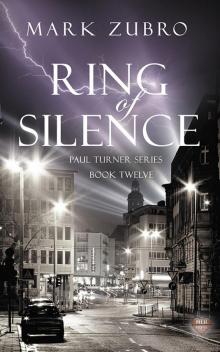 Ring of Silence
Ring of Silence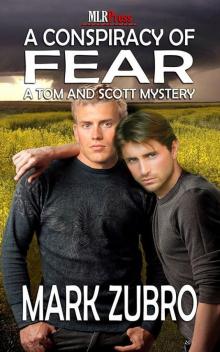 A Conspiracy of Fear
A Conspiracy of Fear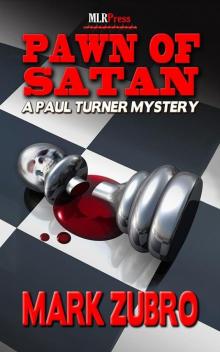 Pawn of Satan
Pawn of Satan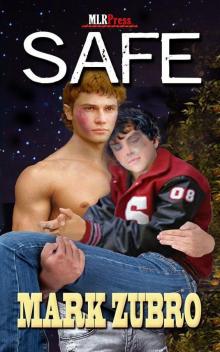 Safe
Safe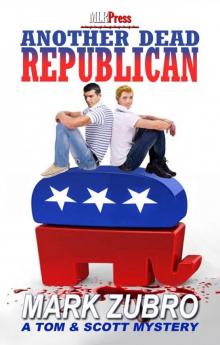 Another Dead Republican
Another Dead Republican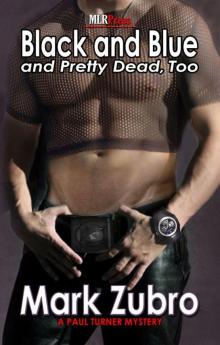 Black and Blue and Pretty Dead, Too
Black and Blue and Pretty Dead, Too Alien Home
Alien Home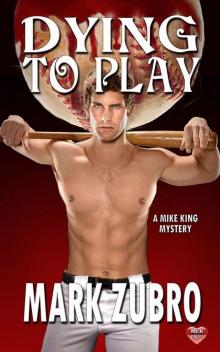 Dying to Play
Dying to Play Alien Victory
Alien Victory